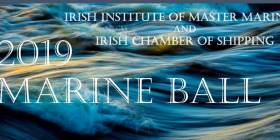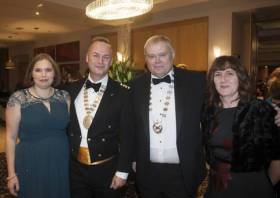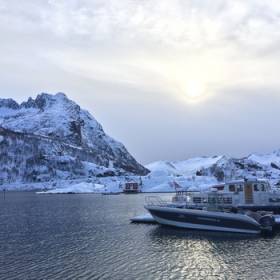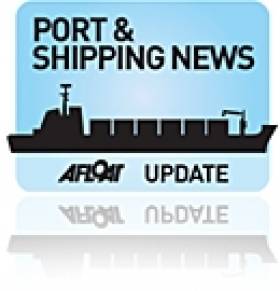Displaying items by tag: Irish Institute of Master Mariners
Sea Scouts Host Master Mariner Seamanship Competition
‘Bravo Zulu’ to the young competitors from Arklow, Malahide, Ringsend, Greystones and Howth Sea Scouts who participated in the annual Master Mariner competition last weekend, hosted at Dublin Port and sponsored by the Irish Institute of Master Mariners.
A huge syllabus covered nautical skills from meteorology to boat maintenance to passage planning at a level often regarded as akin to a second mate’s ticket.
Competitors are examined by professional mariners and yachtsmen to showcase their skills as well as an opportunity to learn tips from the experts.
 Getting to grips with the intricacies of knots
Getting to grips with the intricacies of knots
The examiner team this year featured members from the RNLI, Naval Reserve, Irish Sailing instructors, a professional shipwright, ocean yacht-masters, experienced sea-kayakers and special guest Linda Hughes from Met Éireann.
Linda joined the examining team for the day to assess the competitors meteorology skills and also provided a very informative talk about Met Éireann’s weather forecasting methods and tools.
The examiners praised all competitors who entered, commenting on the impressive level of nautical skills shown.
 The syllabus for the annual Master Mariner competition covers a lot of ground
The syllabus for the annual Master Mariner competition covers a lot of ground
By the end of the day there were only single-digit points between the top candidates so an absolute credit to their skills and time put into their seamanship training.
Congratulations to Dan Clohessy from Malahide who was crowned Venture Scout Master Mariner, and to Jordan Killen from Malahide who was crowned Rover Scout Master Mariner.
The Irish Institute of Master Mariners and the Irish Chamber of Shipping's annual Marine Ball is to be held this week on Saturday, 16th November in the Grand Hotel, Malahide, Co. Dublin.
This year's Marine Ball Black Tie evening will provide a great social event to catch up with old friends and also an opportunity to make new friends while networking. A drinks reception begins at 1900hrs followed by music and fine dining with wine sponsored by Martek.
To book tickets for the 2019 Marine Ball click here and for further information email: [email protected]
The Irish Institute of Master Mariners (see IIMM's website) is a non-political organisation promoting safe, efficient & professional maritime operations globally.
The Institute membership consists of seafarers who are professionally qualified ship navigation officers up to and including the rank of Master Mariner, the globally recognised professional qualification required to command large seagoing vessels in international waters.
Stronghold of Marine Connections Celebrated at Ball in Arklow
#MaritimeBall - From around the country over 160 people were treated to some top class hospitality as the Irish Institute of Master Mariners and the Irish Chamber of Shipping held the Marine Ball in the Arklow Bay Hotel, writes The Wickow People.
It's four years since the ball was last held in Arklow and Mary O'Neill, vice president of the Irish Chamber of Shipping, said it is one of the biggest events of the year. 'Arklow has always had a strong connection with the mariners, so it was great to honour the town,' said Mary.
There was several guest of honours at the event, including Commodore Hugh Tully from the Irish Navy; Conor Mowlds, director of the National Maritime College of Ireland; Liam Lacey, director of the Irish Maritime Development Office; and Michael Kingston, Global Maritime Lawyer of the Year 2016.
Speaking at the event, Cllr Tommy Annesley, cathaoirleach of the Arklow Municipal District, congratulated everyone for their hard work and said that it was 'great to see the local Maritime of Ireland branch to get together with the national organisation.'
As previously reported on Afloat last week, Arklow Shipping's newbuild Arklow Clan, a short-sea trader made a brief anchorage call offshore of the shipowners homeport.
Afloat's shipping correspondent, Jehan Ashmore will have more to report on the maritime heritage of the Co. Wicklow town that has strongly shaped the nation's merchant shipping fleet past and present.
Another key date in the Irish merchant marine calendar is tomorrow's (19 Nov.) annual National Commemoration for Irish Seafarers, which takes place at the memorial monument on City Quay, Dublin from 12 noon.
Cork Man to Forefront of Polar Shipping Laws
#PolarCode - A London based Irish lawyer has been to the forefront of a ground-breaking safety forum for ships in the Polar regions.
Former Lloyds Maritime Lawyer of the Year Michael Kingston from Goleen reports the Southern Star has been integral to drawing up the new Polar Code, which protects the two Polar regions – the Arctic and the Antarctic – from maritime risks. It came into force in January.
Mr Kingston became interested in maritime law years after his own father tragically died in the Whiddy Oil disaster in 1979 when the Betelgeuse tanker exploded in Bantry Bay, Co. Cork.
The Polar Code requires ship owners to have in place contingency plans for all aspects of marine operations including safety of navigation, pollution incidents, ship structure requirements, and search and rescue plans.
In parallel, Lloyd’s and Lloyd’s Register have been actively involved in an industry-led, bottom-up approach to help create standards that will mitigate risk and support those underwriters writing marine risk in polar waters.
Kingston has worked with all eight Arctic states, and many other organisations, including the environmental NGOs, to establish a new forum which should prevent operators from ignoring the requirements of the Polar Code.
Kingston liaises closely with the Irish Institute of Master Mariners and is working on Ireland becoming an observing member of the Arctic Council.
As a result, the Irish Institute of Master Mariners, as well as the National Maritime College of Ireland and the Commissioner of Irish Lights, will attend a key dinner at Trinity House in London on June 5th.
For more on the story click here.
Irish Institute of Master Mariners to Host Gala Dinner at Inaugural Irish Maritime Forum
#ForumGalaDinner - The Irish Institute of Master Mariners (IIMM) has posted details on their website of their members Annual Marine Ball which will be replaced this year instead by a Gala Dinner to be held at Cork City Hall on Friday 26th September.
The change of the annual event is to facilitate the Gala Dinner in conjunction with the previously reported inaugural Irish Maritime Forum held on the same day in Cork City Hall in which the IIMM is supporting.
Members tickets for the Gala Dinner cost €65 per person and can be purchased by registering online through the IIMM's website HERE and by ticking the box for Gala Dinner. Accommodation can also be booked through the website at registration and for accommodation there is a choice of the Clarion or Gresham Metropole Hotels.
The theme of the forum hosted by the Port of Cork Company is 'Developing the Dynamic Future for Ireland's Maritime Sector' which is to focus on exploring the future of the maritime sector within Ireland. Also to be examined more closely are the challenges and opportunities faced by many within the sector.
In addition to a welcoming address by an Irish Government Minister, there will be lunch and a partner's programme organised. Delegates interested in attending the Irish Maritime Forum 2014 (and exhibition) are asked to register by visiting: www.irishmaritimeforum.ie



























































